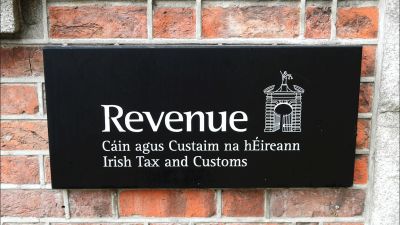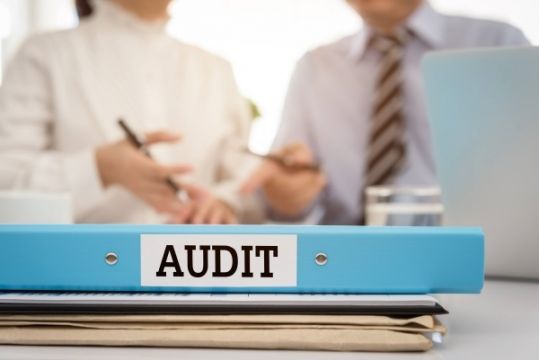Covid-19 pandemic tax bills for those who received the Pandemic Unemployment Payment (PUP) or the Temporary Wage Subsidy Scheme (TWSS) are set to arrive on Friday, January 15th.
The amount people will owe will vary greatly. Some will find themselves exempt from bills due to their lower income for 2020, while others may even be owed a tax refund from Revenue.
Tax experts are urging those facing bills not to panic, and remember they are not expected to make a “lump sum” payment. For those who do owe tax, their bills will be spread over a number of years in the form of reduced tax credits.
PUP — lower rates
For those who received the PUP, tax liability will range from nothing owed to a bill upwards of €2,000.
The best way to approximate a person’s tax bill is to look at the total 2020 income by combining both their employment income and PUP payments, according to consumer tax manager at Taxback.com, Marian Ryan.
Those whose combined income amounts to less than €16,500 for 2020 are unlikely to face a tax bill, Ms Ryan said.
The standard weekly tax credits for a single person of €63.46 will fully cover any tax liability arising on the two reduced rates of the PUP.
PUP — higher rates
For those who received a higher rate of the PUP, their tax bill will be affected by factors such as their earnings before the pandemic, how long they were in receipt of the PUP, and if they have returned to work on a similar or reduced income.
“There are a never-ending number of variables involved, but it is fair to say that the higher your total 2020 income is, the higher the resulting underpayment is likely to be,” Ms Ryan said.
“If it is between €16,500 and €35,500, you will potentially have to pay 20 per cent of the PUP received as Pay As You Earn (PAYE) and an additional 4.5 per cent approximately of Universal Social Charge (USC).
“If your income is over €35,500 for 2020, the potential PAYE due could be upwards of 40 per cent of your PUP received along with an additional 4.5 per cent of USC to be paid.
“For example, if we look at the €35,000 and €67,500 earners and assume, they received the PUP for 23 weeks and returned to work on the same salary as pre-Covid.
“The €35,000 earner would have an approximate underpayment of €1,347.88 and the €67,500 earner would have an underpayment in the region of €2,492.00.”
Ms Ryan said that taxation will “disproportionately” affect middle-income earners.
Wage subsidies
Tax bills for those who received the TWSS will also “vary greatly” from person to person, depending on their circumstances, their earnings pre- and post-TWSS, and if their employer topped up their gross weekly wage.
“A typical worker on €35,000 who received the TWSS payment which wasn’t topped up by their employer can now expect to owe Revenue approximately €429,” Ms Ryan said.
“If the same employee received the TWSS and their employer topped-up their gross weekly wage, they can now expect to owe approximately €1,334.
“Similarly, a worker on €67,500 whose income was topped up by their employer to the maximum allowable amount would now expect an underpayment in the region of approximately €2,837.”
These tax bill estimates could potentially be lower, as they do not take into account additional tax credits and expenses that workers can claim in order to reduce their liability.
Wage subsidy tax refunds
Ms Ryan said some workers on higher salaries who received the TWSS could potentially be due a tax refund rather than face a bill.
“The same employee on €67,500 pre-Covid salary, who received the TWSS, but without a top up from their employer on their gross weekly wage, could potentially be due a tax refund (PAYE and USC) of approximately €1,307,” she said.
“The reason for this potential refund is that their 2020 income would have been significantly reduced when they were in receipt of the TWSS.
“They would have paid a substantially higher amount of PAYE and USC in January and February, 2020 on the assumption that their income would have been €67,500 for the entire year.”
Payment
Tax experts are reminding workers to “not be alarmed” by the amount owed when they receive their tax bill on Friday.
This bill will come in the form of a preliminary end-of-year statement, which will not include all the tax credits and expenses that a person may be entitled to that will lower or even eliminate their final bill.
Ms Ryan also reminded that no tax bill will have to be paid in the short-term.

“The main thing to bear in mind at this point is that Revenue have already said that this tax liability will not fall due this year, or even next year,” she said.
“Although the option is available to taxpayers to clear the underpayment, people are not expected to make a lump sum payment.
“Instead, what will happen is that Revenue will reduce a person’s tax credits over a period of between two to four years, commencing in 2022.”
Those who received the PUP or TWSS can learn more about how pandemic payments will be taxed this year here: Explainer: What to expect in your pandemic tax bill for PUP and other subsidies.







